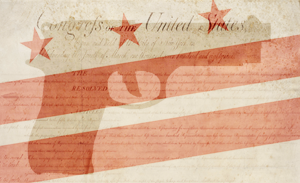The Second Amendment is a bit unique among our constitutional rights. In order to protect some rights, our Constitution places obligations on the government, as is the case in Fifth Amendment, which requires to government to indict via grand jury, and the Sixth Amendment, which requires the government to provide “a speedy and public trial, by an impartial jury.” The rest of the Amendments generally forbid the government from doing things, like infringing on speech, quartering troops, or inflicting cruel and unusual punishment. The Second is not different in this regard, but I’ve heard some of our opponents in the gun control movement try to argue the Second Amendment has to be a unique case because it protects dangerous objects, and no other amendment protects objects. In that context, I find this recent law review by Eugene Volokh interesting, in regards to what constitutes “the press.”
But other judges and scholars—including the Citizens United majority and Justice Brennan—have argued that the “freedom . . . of the press†does not protect the press-as-industry, but rather protects everyone’s use of the printing press (and its modern equivalents) as a technology. People or organizations who occasionally rent the technology, for instance by buying newspaper space, broadcast time, or the services of a printing company, are just as protected as newspaper publishers or broadcasters.
Professor Volokh’s review takes a look at early case law, and demonstrates that protection of the press as a technology is the predominant one in American jurisprudence. It is actually surprising how much the early media resembled what’s grown organically from the Internet.
But it shows that the Second Amendment is hardly unique among rights in protecting the right to own an object. Implicit in freedom of the press is the right to own one, or the modern equivalent, which would be a computer, and an Internet connection. Computers and Internet connections can certainly be subject to heinous abuses, such as distribution of child pornography. One could even imagine it possible to kill many people by hacking into the right public works systems and disrupting them.
Yet, in most cases, the Government is quite limited in how it can restrict access to the press. Could the government ban child molesters from owning a computer? From an Internet connection? Actually, this is an active issue, currently. But far from being an extreme point of view, it’s completely justifiable to question whether the government can require a license for owning a firearm, when it can do no such thing for a printing press or a computer. Could the government even subject computer buyers, or Internet subscribers, to an instant background check? That’s probably of dubious constitutionality. So why is it to radical to suggest guns be treated in the same manner? It is only radical because our opponents, who are extremists, say it is. But in the realm of constitutional law, it’s a legitimate question.

